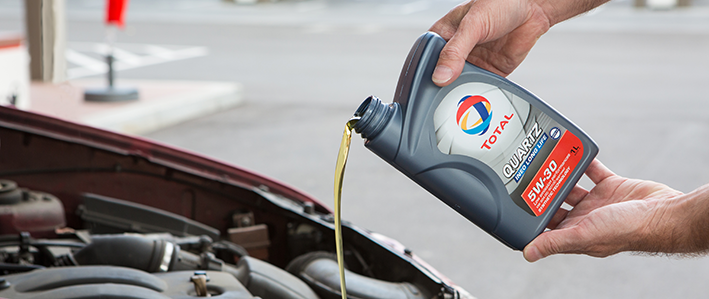
Engine oil is essential for the performance and wellbeing of your vehicle but choosing the right product can sometimes throw up more questions than answers. To help answer some of these, the Finol technical team has answered some of the most frequently asked questions in regards to engine oil to ensure you have all the information you need when choosing an engine oil.
Engine oil is the lifeblood of your vehicle and is specifically designed to lubricate the internal components of an engine, while at the same time performing integral functions such as cooling and protection against wear. Check out our guide to engine oils, a complete ebook detailing the key information you need to choose the right oil for your vehicle.
- Corrosion Inhibitors Protect against corrosion and wear & tear as the oil begins to breakdown. This ensures that the lifespan and performance level of your engine is increased.
- Reduces friction caused by metal to metal contact between the moving parts by seperating them with a film of oil.
- Detergents that are part of the additive packages Remove impurities to the oil filter and clean existing deposits and foreign substances in the engine, This increases engine cleanliness & prevents it from catastrophic damage.
- Engine Oils act as a Seal space between the piston & cylinder as they are not completely smooth These gaps are filled by the Engine Oil optimising engine performances and efficiency.
- Although the coolant system based in engines cools the upper engine and it’s parts, engine Ooils also Cool the engine, reducing energy loss, & engine deterioration.
Although it may seem that the 2 products on the shelf are the same, engine oils differ greatly in areas such as specifications, base oil and additive packs used and even viscosity and performance levels. It is essential that you use the oil with the correct specifications for your vehicle to ensure optimal performance and protection. Check out our full range of engine oils today.
Synthetic oils are refined and distilled and broken down to their basic molecules. This purification process removes impurities and allows for the oil to be tailored to suit modern engines. Mineral Oil is developed directly from crude oil. It also has excellent lubrication properties. In fact, synthetic oil begins life as mineral oil, but is modified to improve its lubricant properties and increase protection. View our full range of synthetic engine oils today.
As modern engines have advanced, so has the specifications and requirements. OEM’s (Original Equipment Manufacturers) have built their engines in particular way and specific engine oils are formulated to ensure that each appilcation required by these engines are covered.
Engine oils will breakdown or “degrade over time. This means that the engine oil will not be able to perform key functions such as protection against friction wear, reducing corrosion and removing contaminants. Always check your owners manual to see when the recommended oil change is set for your vehicle. You can find out more about oil degration by reading our in-depth oil blog.
Engine oil perfromd numerous tasks, so putting the wrong oil can lead to catastrophic failures. The key area to look at is viscosity. Modern engines need thinner oils than those from previous years. They also use moderen additives that would not have been available back then. Using the wrong viscosity can lead to reduced lubrication and a shorter engine life. Always read your owners manual first to see what specifications are required.
If you operate a modern turbodiesel car that has a DPF (Diesel Particulate Filter) fitted to the exhaust, you must use a low SAPS (Sulphated Ash, Phosphorous, Sulphur) oil. ACEA rates these oils as C1 (0.5% ash), C2 (0.8% ash which is better suited to higher performance engines) and C3. Therefore, if you go into a shop and the packaging of an engine oil says “5W-30 C1” then this is a grade that is suitable for a car with a DPF. To find out more about these specifications, read our in-depth article detailing their types and uses.
Engine oil plays a number of key functions when protecting an engine. But it is extremely Oil additives are chemical compunds added to an engine oil specifically designed by the manufacturer to improve the lubrication performance of a base oil. Additives perform a wide array of functions including: viscosity index modifiers, anti-foam agents or extreme pressure to name but a few.
If you walk into any number of automotive stores or motorfactors, you will numerous bottles of aftermarket engine oil additives that will state that they will improve performance and protect your engine even better than the additives currently added. Working in conjunction with the OEM, oil manufacturers have formulated the oil to perform specific functions and additives are balanced to perform these tasks. Adding extra additives will affect this balance, detrimentally lowering the oils performance.
The simple answer to this question is no. Engine oil will degrade or break down overtime. Additive packs will also deplete meaning your oil can perform the extremely important tasks that it is designed to do. By consistently topping up you are putting undue stress on the older oil and cannot be rectified by the new oil. This can lead to engine damage or even catastrophic failure. Read our guide on changing your engine oil to learn more on this topic.
Many of us would consider “severe conditions” to fall into the bracket of extreme cold or heat. However, severe driving can be a lot more than weather conditions. It can also include a heavy load, rough terrain or even your general drive to work. Stop start conditions do not allow the enigne to warm up completely, can result in the build up of moisture and also allow increase the level of wear and tear. By implementing the proper maintenance advise found in your service manual you can ensure your vehicle performs at a higher level for longer.
The first point of call for any decision on engine oil should be your owners manual. Original Equipment Manufacturers have spent countless hours building and testing, putting the engine under a number of conditions. The owners manual will recommend a grade that will ensure that your vehicle performs at the highest standard. You can also use the latest oil finder application to the market, Which Oil. Which Oil, allows you to enter your registration or make and within seconds will recommend the best lubricants for your vehicle.
